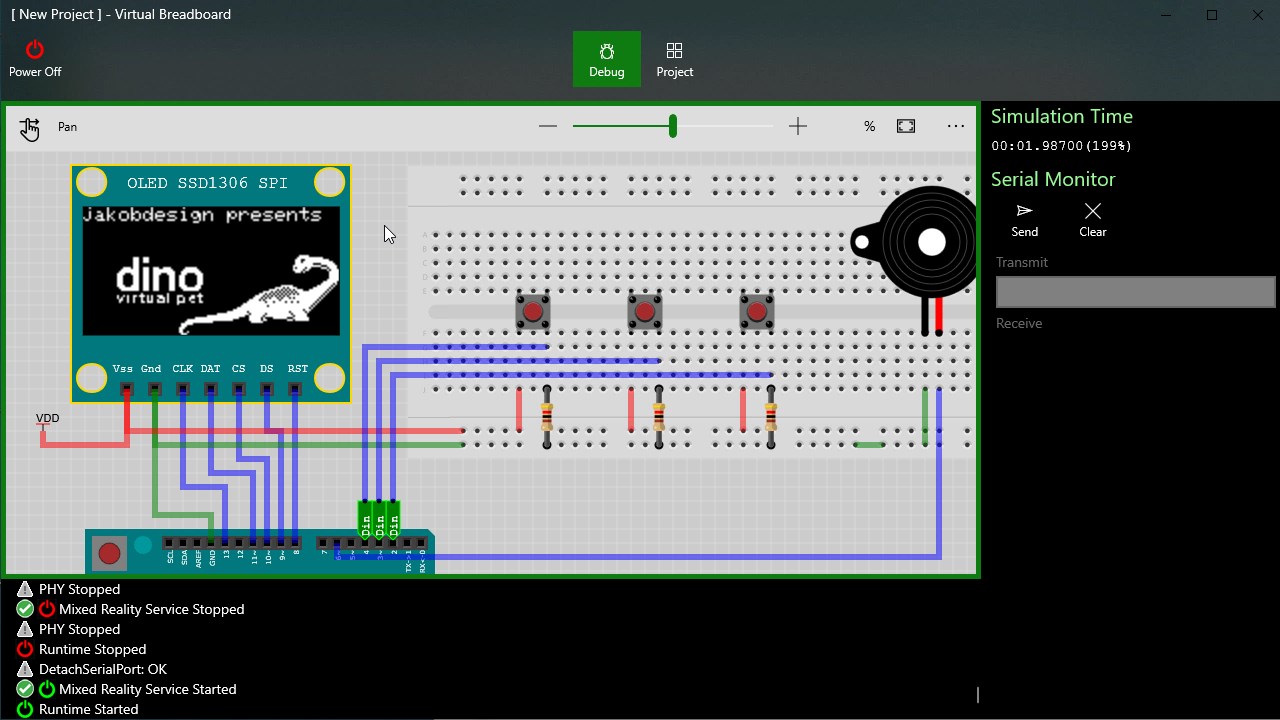The Virtual Breadboard EDGEY Solves Component Shortages by Creating "Mixed Reality Circuits".
The EDGEY connects Virtual Breadboard to real-world microcontrollers by supporting physical and virtual hardware in any combination.
By emulating common hardware, the under-development Virtual Breadboard software seeks to liberate you from waiting for component deliveries or pulling components out of overloaded drawers — it now includes a method of interacting with physical microcontrollers to generate "mixed reality circuits."
The software's unknown inventor states that "Virtual Breadboard [...] was one of the first platforms to allow Arduino virtualization." "The Arduino model replicates the ATmega328P core and peripherals, which when linked to virtual components generates interactive virtual models for learning and building Arduino applications."
"When I realized that supporting all potential microcontroller modules to the required degree of precision was going to be impossible," the software's inventor says, "I got the notion of utilizing the actual microcontroller with the virtual hardware instead."
Enter EDGEY, the Virtual Breadboard ecosystem's first tangible add-on. A physical development board may be linked to the Virtual Breadboard system using EDGEY and a compatible microcontroller adapter, allowing it to communicate with simulated hardware as if it were real. Once a project has been validated, the same microcontroller may be used to operate the real-world analogs of the components — or a circuit made up of real and virtual devices.
EDGEY initially supports four microcontrollers: the Arduino Uno (through a shield adaptor), the Arduino Pro Micro, the BBC micro:bit, and the Raspberry Pi Pico. On the other hand, its designer claims to be working on adapters for a variety of other popular boards, including the Raspberry Pi single-board computer family, the Propeller Flip, and the Particle line of boards NodeMCUs, Feathers, Teensy boards, and others.
Meanwhile, the program is now available for download from the Microsoft Store, however, evaluations indicate that it is still a work in progress with a number of flaws that need to be addressed.

















0 Comments